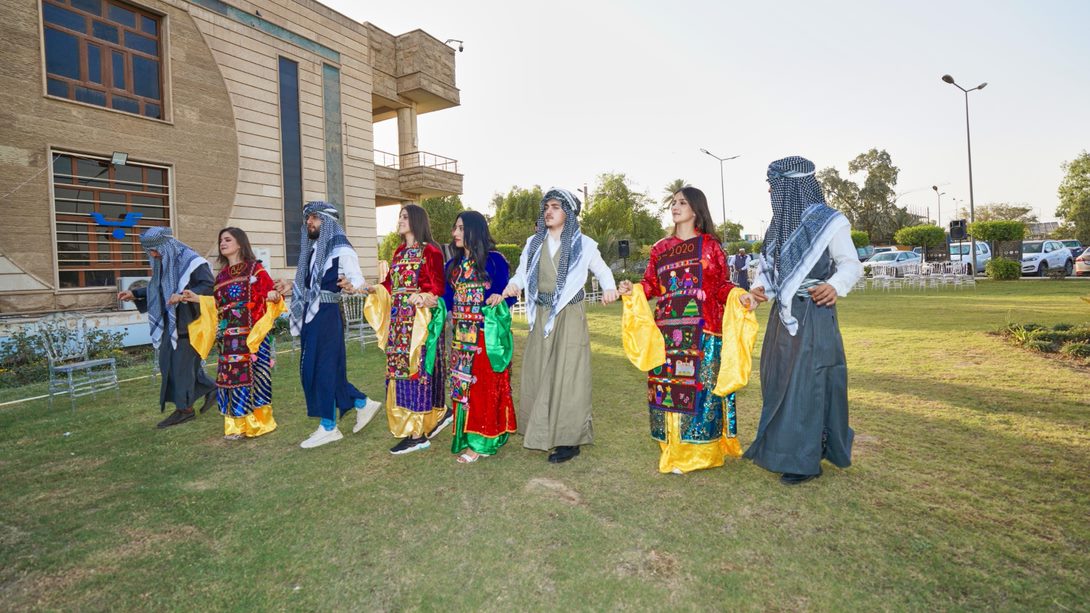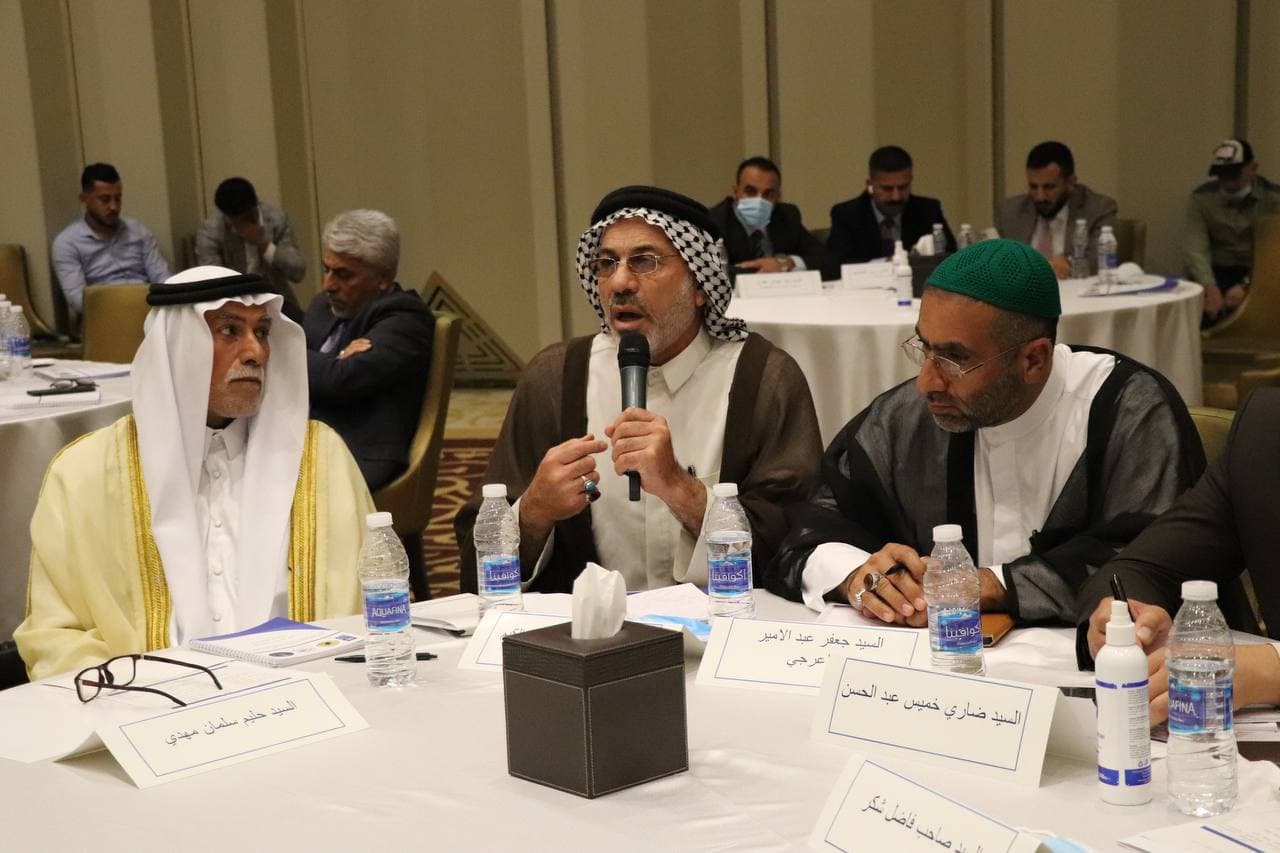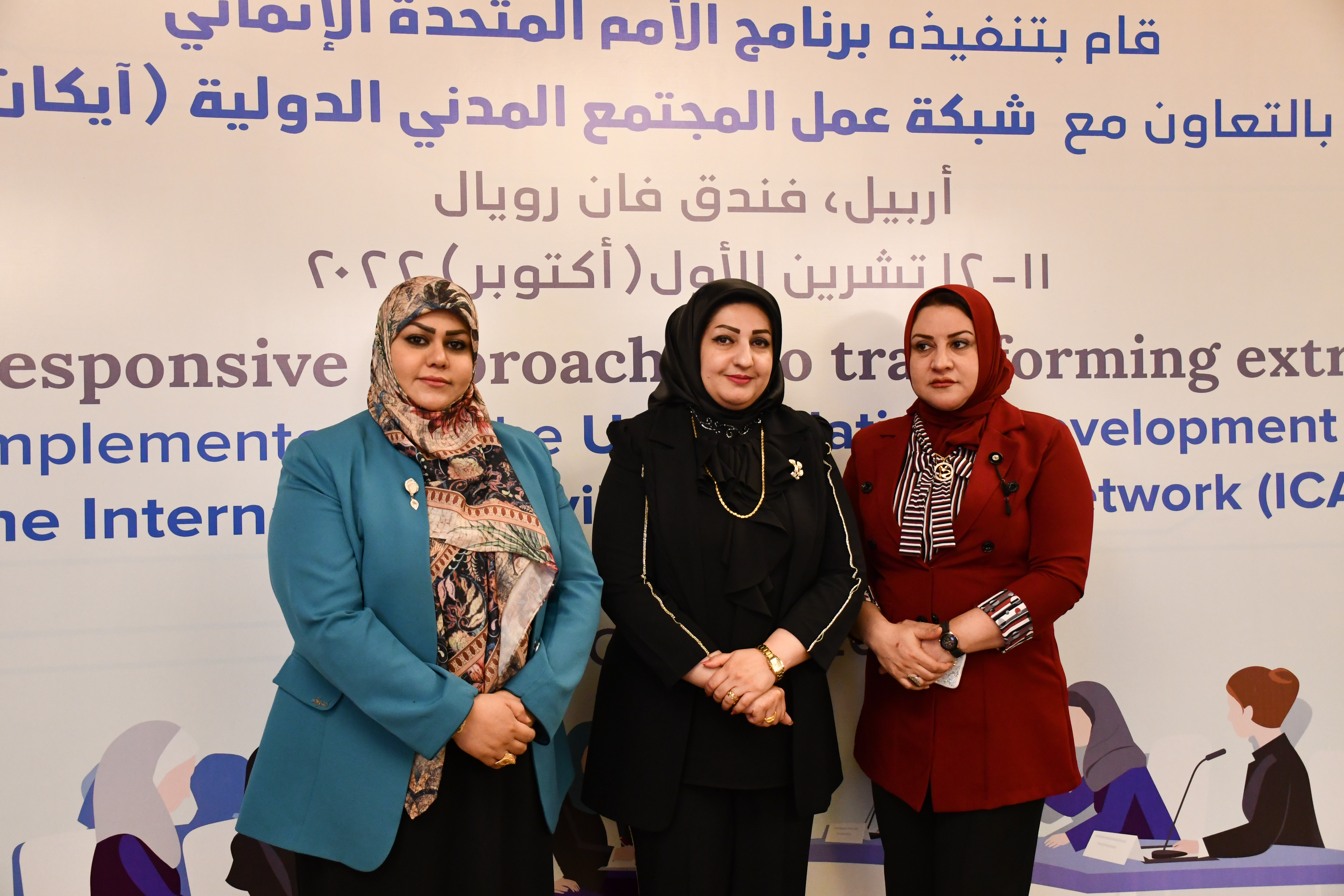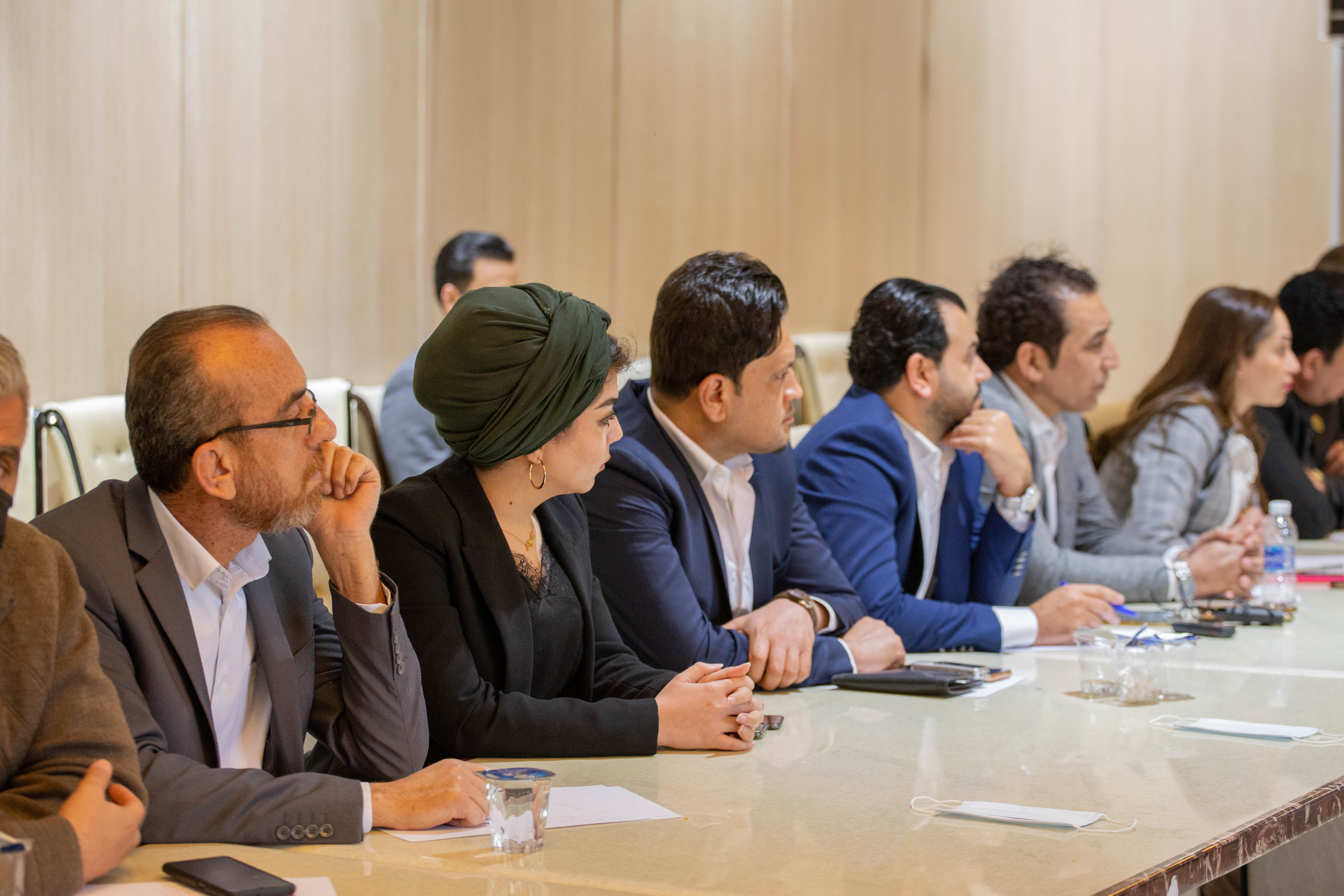Sustainable peace in Iraq: An integrated approach to social cohesion
December 31, 2022

Iraq’s situation with respect to development is complex. Key threats related to a power imbalance alongside widespread feelings of inequality threaten citizen-state relations, leading to tense pin-drop political uprisings. Recent changes, including those stemming from the COVID-19 pandemic alongside the visible effects of climate change, threaten an already fragile social fabric, leading to displacements and fueling potential clashes for resources. These issues leave vulnerable communities with no livelihood opportunities exposed to violent extremism.
UNDP conceptualizes social cohesion in two ways. Horizontal social cohesion relates to relations between citizens and groups found in society. Vertical social cohesion relates to relations between citizens and the government. Post-conflict, alongside re-building vital infrastructure and housing, comes the strengthening of social cohesion. In Iraq, a comprehensive plan related to social cohesion complements all aspects of society.
Preventing Violent Extremism (PVE)
UNDP is supporting national PVE strategy, through close work with the Office of the National Security Advisory to develop governorate-level plans, as well as capacity building for 60 NGOs across Iraq through the NGO Directorate, and for local authorities. At the community-level, vulnerable communities are supported through socio-economic and Mental Health and Psycho-Social Support (MHPSS) interventions to improve community resiliency against violent extremism.
“Key issues affecting Iraq include corruption and pockets of extremist religious ideology. This training helped us to understand tools to diagnose causes of violent extremism and supported us to think of methods to prevent its spread, which we will take back to our governorates.”
-Nawras, 40, Karbala.

Religious Leaders
The development of a strong religious leader network is the product of five large-scale interfaith religious leader forums for a total of over 300 religious leaders across the governorates of Anbar, Diyala, Kirkuk, Ninewa, and Salah al-Din. Capacity building has ensured the network is well versed on moderate religious discourse, PVE, and tools to promote cohesion within communities.

Women Peacebuilders
Women represent half of society, and female representation is vital at every table where decisions are made. Partnerships with Folke Bernadotte Academy and the International Civil Action Network have contributed to empowering women peacebuilders across Iraq on Preventing Violent Extremism (PVE), social cohesion, and conflict resolution.
“It is necessary to consider gender in preventing violent extremism, because some factors affect females more than they affect males. We also need awareness sessions to curb the phenomenon of domestic abuse against women.”
-Angham Ali Hussein, 33, Diyala, Vice President of Rita Organization for the Care of Children and Orphans

Reintegration of ISIL-Affiliated Families
Under the Community-based Reconciliation and Reintegration in Iraq Project, UNDP has reintegrated 4,000 families with a comprehensive multi-faceted approach of housing rehabilitation, Mental Health and Psycho-Social Support and livelihoods capacity building and support. Reducing stigma surrounding those with perceived ISIL-affiliation and incorporating community benefits for both returnees and communities of return ensures a balanced approach, benefitting all involved. Encouraging returns and rehabilitation for those currently displaced from Al-Hol Camp has included partnership with national government, local community leaders, sister agencies, and civil society. Reintegration programming has significantly expanded to three new areas.
“We suffered the most in Al-Hol Camp, but upon our return we were admitted to the rehabilitation programme. My experience with the psychological support programme was useful, and I feel that many families can benefit from these programmes.” -Fatima, 27, former wife of an ISIL member.
Local authorities and Community-Based Organizations
Over 450 Community-Based Organizations across Anbar, Diyala, Kirkuk, Ninewa and Salah al-Din have been capacitated on social cohesion, PVE, networking, and project management, with 91 organizations receiving small grants for peacebuilding initiatives. Work with local authorities has seen over 2,000 community police, police, local officials, and local community leaders capacitated across Kirkuk and Ninewa.
“We have discussed how religious leaders and government representatives must involve youth and women in decision-making in order to contribute to change for the better and promote cohesion and unity.”
-Hanin, 25, CBO project participant, Mosul.
Local Peace and Dialogue Committees
Support to 28 Local Peace and Dialogue Committees across the five liberated governorates engages local authorities and community leaders in peacebuilding and community reintegration initiatives. These committees are vital in securing Local Peace Agreements to facilitate the return of Internally Displaced Persons back into their communities.
“We have agreed that displaced citizens should not be left alone, and we are working to fully support reintegration.”
-Amjad Yassin, member of the Mosul Local Peace Committee.
Youth Peace Groups
An established network of 200 Youth and Women for Peace groups stretches across the liberated governorates. Each of the five governorates is home to one Youth for Peace Group and one Women for Peace Group, each composed of twenty members. Since 2020, the groups have led the design and implementation of over 75 community peacebuilding initiatives, tailored to the specific needs of community members, demonstrating the initiative and capability of youth in Iraq.
“By empowering young people, the roots of extremism and violence will be eradicated, and we will head towards recovery.” -Kawthar Almohammedi, 30, Member of the Anbar Youth for Peace Group

Citizen Journalists and Media
A network of over 200 young media professionals has been established under the Citizen Journalism Project, including capacity building on the prevention of Hate Speech, and the use of citizen journalism tools to create and promote stories with positive peacebuilding narratives. An established online platform has featured over 500 products this year, along with the launch of the Peace and Coexistence Short Film Festival on 21 September 2022.
"I want to write about coexistence between Yazidis and Muslims also draw more attention to my region. By sharing and publishing news on peaceful coexistence, these stories will be reflected in other regions accordingly.” -Layla, 25, Ninewa.
Support for Social Cohesion in Iraq is a five-year programme launched in January 2020 to promote stronger, peaceful and more cohesive communities in all areas of Iraq.

 Locations
Locations